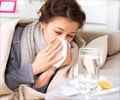- Loratadine: a nonsedating antihistamine with once-daily dosing - (https://pubmed.ncbi.nlm.nih.gov/2525847/ )
- Cardiovascular safety of second-generation antihistamines - (https://pubmed.ncbi.nlm.nih.gov/10392245/ )
- Loratadine - (https://medlineplus.gov/druginfo/meds/a697038.html )
- A review of antihistamines used during pregnancy - (https://www.ncbi.nlm.nih.gov/pmc/articles/PMC3356948/ )
Loratadine Medication Information
Learn everything you need to know about Loratadine-pronunciation, uses, dosage guidelines, indications, and when to take or avoid it.
Get up-to-date information on side effects, precautions, warnings, and proper storage to ensure safe usage.
Explore Loratadine brand names commonly used in India and internationally, along with detailed pricing information. Consult your healthcare provider for tailored medical advice.
Generic Name : Loratadine Pronunciation : lor at a deen ICD Code : Y55.5 Therapeutic Classification : Antihistamines And DecongestantsBrand Names or Trade Names of Loratadine
India :
International :
Agistam, Alavert, Claritin, Clear-Atadine, Dimetapp ND, Tavist Non-Sedating, Wal-itin
Why is Loratadine Prescribed? (Indications)
This medication is an antihistamine, prescribed for allergic conditions. It blocks histamine action, which reduces allergy symptoms.When should Loratadine not be taken? (Contraindications)
Contraindicated in pregnant women, newborns.What is the dosage of Loratadine?
Po- Adults: 10 mg daily as a single dose.Children: <30kg- 5 mg once a day; > 30 kg: 10 mg once a day.
How should Loratadine be taken?
It comes as a tablet, syrup, and suspension to take by mouth with or without food.What are the warnings and precautions for Loratadine?
• Caution should be exercised in patients with liver or kidney disease, and epilepsy.• It may cause dizziness or drowsiness, do not drive a car or operate machinery while taking this medication.
What are the side effects of Loratadine?
Most Common - Fatigue, giddiness, dizziness, dry mouth, headache, nausea and drowsiness.Metabolic - Increased tears, salivation, flushing, impotence, increased sweating and thirst.
Body as a Whole - Swelling in the extremities, weakness, back pain, blurred vision, chest pain, earache, eye pain, fever, leg cramps, uneasiness, rigors, ringing in the ear and weight gain.
Heart - High/low blood pressure, palpitations, fast heart rate and fainting.
Central Nervous System - Increased muscle tone, tingling, tremor and unsteadiness.
Gastrointestinal - Altered taste, loss of appetite, constipation, diarrhea, indigestion, flatulence, hiccups, increased appetite, loose stools and vomiting.
Musculoskeletal - Joint/muscle pain.
Psychiatric - Agitation, memory loss, confusion, decreased sexual drive, depression, impaired concentration, sleeplessness and irritability.
Reproductive - Breast pain, painful menstruation and vaginal inflammation.
Respiratory System - Asthma, coughing, difficulty in breathing, bloodstained sputum, nasal dryness, inflammation of sinus and sneezing.














